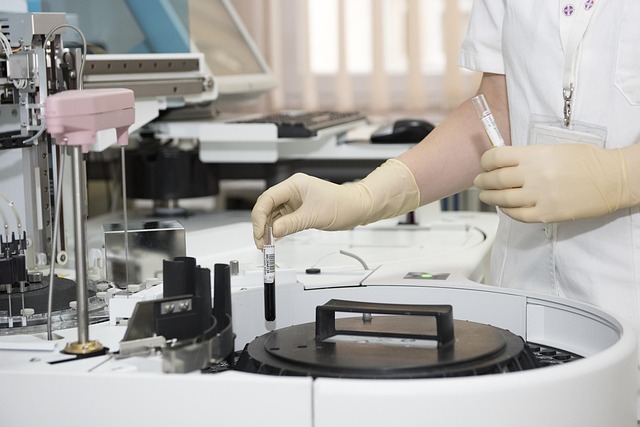Healthcare institutions rely on robust IT infrastructure for healthcare operations, with 24/7 accessibility to ensure continuous care. This enables quick access to medical histories, efficient communication, and seamless appointment scheduling. Proactive support minimizes downtime, prevents data loss, and safeguards sensitive patient information, ultimately enhancing satisfaction and outcomes. Regular updates, cybersecurity measures, and redundancy mechanisms maintain the integrity of this critical system.
In today’s digital age, healthcare operations heavily rely on robust and continuous IT support. “24/7 IT Support to Ensure Seamless Healthcare Operations” explores the critical role of round-the-clock technical assistance in meeting unique healthcare demands. We delve into the benefits of resilient IT infrastructures tailored for healthcare, enhancing patient care through instant accessibility. Understanding these components is vital for navigating the complex landscape of modern medical services and ensuring optimal outcomes.
Understanding Healthcare's Unique IT Demands
Healthcare institutions operate in a complex and dynamic environment, where technology plays an indispensable role in delivering quality patient care. The demand for 24/7 IT support arises from the critical nature of healthcare operations, which rely heavily on robust and reliable IT infrastructure for seamless functioning. Unlike traditional industries, healthcare facilities must address unique challenges, such as managing vast amounts of sensitive patient data, ensuring secure communication, and facilitating real-time access to medical records.
The IT infrastructure for healthcare involves sophisticated systems, including electronic health record (EHR) management, telemedicine platforms, and advanced diagnostic tools. These technologies require continuous maintenance, updates, and technical expertise to prevent disruptions and security breaches. 24/7 support ensures that any issues or outages are promptly identified and resolved, minimizing downtime and potential risks to patient safety and data integrity.
The Role of Round-the-Clock Support
In today’s digital age, healthcare institutions rely heavily on robust and reliable IT infrastructure for seamless operations. Round-the-clock IT support plays a pivotal role in ensuring that critical systems function optimally, data remains secure, and patient care isn’t compromised. With 24/7 support, hospitals, clinics, and care facilities can navigate any technical challenges promptly, minimizing disruptions to their services.
This continuous availability of technical assistance is particularly crucial during peak hours or emergencies when system failures could have dire consequences. Trained IT professionals equipped with specialized knowledge in healthcare technology can troubleshoot issues efficiently, implement quick fixes, or escalate matters to relevant experts. Such proactive measures contribute to maintaining a stable IT infrastructure for healthcare, fostering an environment where patient safety and satisfaction remain paramount.
Building Resilient IT Infrastructure for Healthcare
In today’s digital era, healthcare institutions heavily rely on robust and resilient IT infrastructure for healthcare operations. Building a strong technical foundation is crucial to ensure seamless access to patient records, secure communication among healthcare providers, and efficient management of critical systems. This involves implementing state-of-the-art hardware, software solutions, and robust network architectures designed to withstand disruptions.
A key aspect of building resilient IT infrastructure for healthcare includes redundancy mechanisms, such as backup power sources and data centers, to minimize downtime in case of technical failures or emergencies. Additionally, integrating advanced cybersecurity measures is essential to protect sensitive patient information from cyber threats. Regular updates, patches, and system hardening are also vital to mitigate vulnerabilities and maintain the integrity of the IT environment supporting healthcare delivery.
Enhancing Patient Care through 24/7 Accessibility
In today’s digital age, healthcare organizations heavily rely on robust IT infrastructure for healthcare operations. 24/7 accessibility to IT support ensures that critical systems, from electronic health records (EHRs) to scheduling software and communication platforms, remain operational around the clock. This seamless connectivity directly enhances patient care by enabling quick access to medical histories, facilitating efficient appointment scheduling, and ensuring secure communication between patients, providers, and specialists.
With round-the-clock IT support, healthcare facilities can swiftly address any technical glitches or security breaches that may arise. This proactive approach minimizes disruptions in patient care, prevents data loss, and maintains the integrity of sensitive medical information. Ultimately, this accessibility contributes to improved patient satisfaction and outcomes by fostering a responsive and reliable healthcare environment.
In conclusion, the demand for 24/7 IT support in healthcare is paramount to maintaining seamless operations and enhancing patient care. By addressing unique IT demands with robust round-the-clock service, healthcare institutions can build resilient infrastructures that enable continuous access to critical systems. This ensures that patients receive quality care at all times, regardless of the day or hour, ultimately reflecting a commitment to patient safety and satisfaction in today’s digital healthcare landscape. Furthermore, optimizing IT infrastructure for healthcare through this approach fosters efficient workflows and improves overall organizational resilience.
